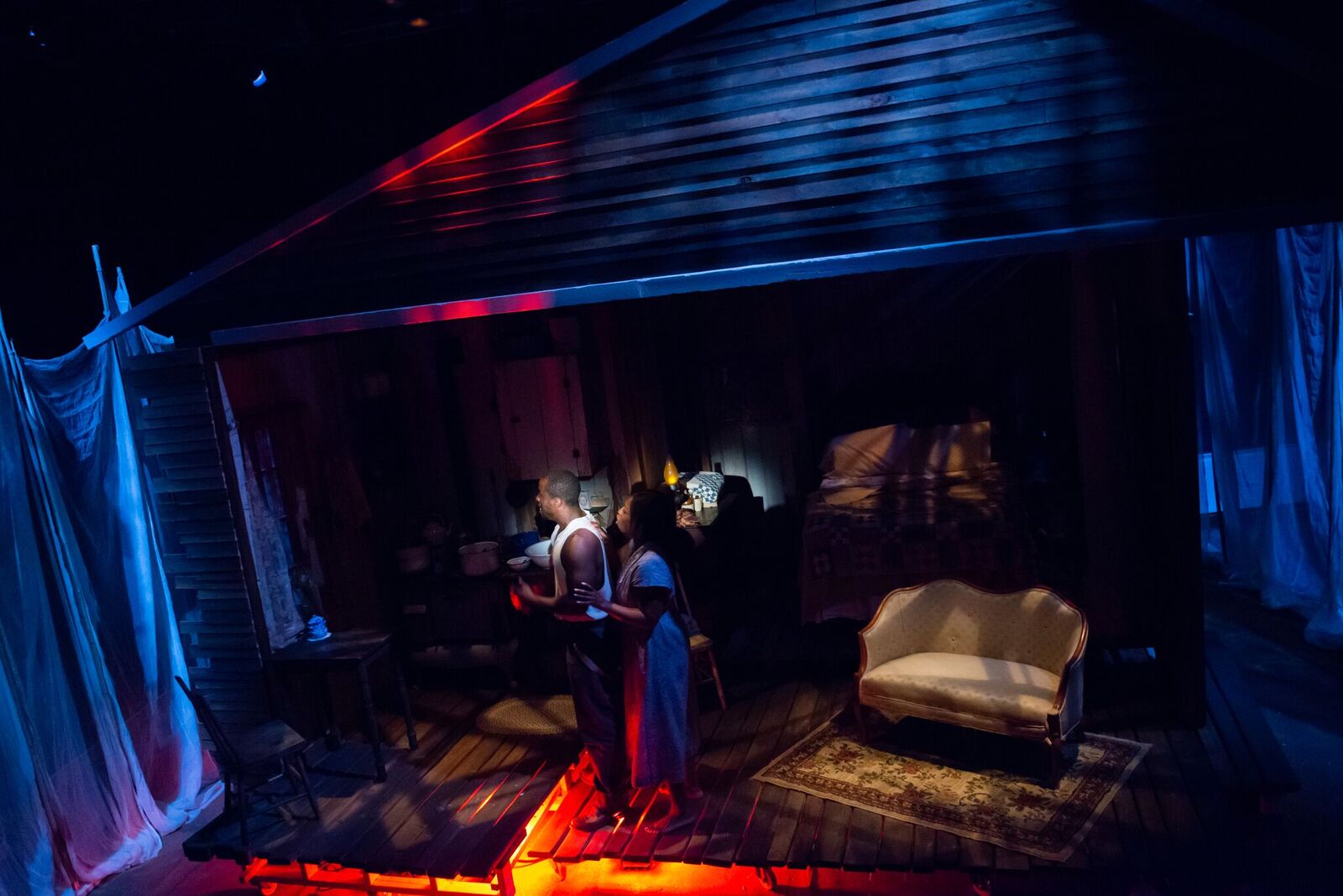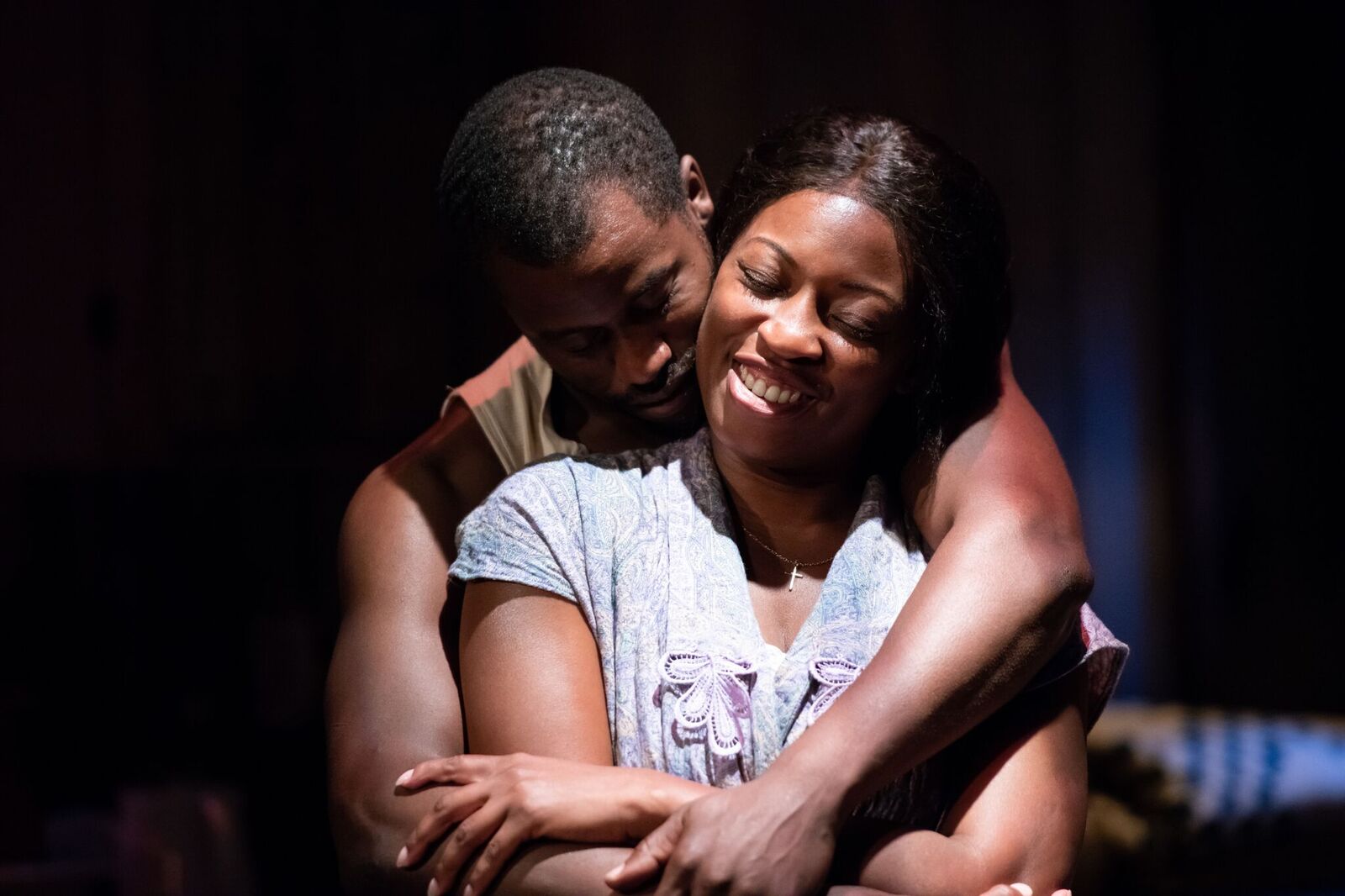“The past is never dead. It’s not even past.”
–William Faulkner, Requiem for a Nun.
Of the many great moments in the late August Wilson’s Twentieth Century cycle, the most powerful one for me comes in The Piano Lesson, Wilson’s evocation of the Hill District in Depression-era Pittsburgh, Pennsylvania. A circle of men, all from the same county in Mississippi, are hanging out together when the conversation turns to Parchman Farm, the Mississippi State Penitentiary, a prison for men, mostly black, where hard labor was the rule.

All of them had seen time there after being arrested for a variety of misdemeanors – breathing while black likely being the most common; throughout the Jim Crow era, black men were routinely rounded up on trumped-up charges, especially during seasons when labor at the penitentiary was in demand.
One of them takes up the song they sang to help keep time with their sledgehammers, “Berta, Berta.” For that brief moment, all of them are transported back to the most painful time of their lives, and they bond in their pain, in spite of themselves. Verse follows verse, punctuated by cues for the hammers to rise and fall, and although the hammers have been replaced by shot-glasses, the hard labor of Parchman Farm is etched in their faces and gestures.
Wouldn’t it be wonderful if we could look at moments like this as a relic, to understand their pain as something that had long since disappeared from our society? But of course, it hasn’t. And with the daily parade of videos in which whites confront blacks as they go about their daily lives—shopping, barbecuing, swimming, etc.—it is painfully clear that Parchman Farm remains among us as a living curse, only now it’s not even confined to a prison in the Deep South; just as all of Denmark was a prison for Shakespeare’s Hamlet, America can seem all too often a vast, open-air prison.
Angelica Chéri has taken this prison song – first recorded by Alan Lomax in the 1950’s, and readily available online – to create a riveting, gut-wrenching fable of two lovers trapped in Mississippi’s Jim Crow south. Berta, Berta is, on the one hand, a tale of personal tragedy, but Chéri has crafted a drama that also shows us how easily blacks—of any era—can be demonized, imprisoned, and see all their dreams destroyed.

Director Reginald L. Douglas has created a stunning, unforgettable evening with two of the most talented, explosive actors – Jason Bowen and Bianca Laverne Jones – you are likely to see on this or any stage. The passion, the rage, and the heartache are laid bare in a matchless performance that will leave you speechless—and with a far deeper understanding of the challenges that face us.
Luciana Stecconi has created a compact, multi-level set evoking the ramshackle farmhouses of the deep south, the sort cobbled together with grit and heart, but more than a few holes. Things in this house fall apart, and at times the fragility of Berta’s solitary life – when we meet her she has already been widowed – is almost too much to bear.
Leroy, who has longed to be her husband, wishes he could be more than just her lover — he wants to be with her for life. But Parchman has fallen between them, and a fateful sequence of events, like dominoes, have fallen to the point where a happy ending is impossible.
Bianca Laverne Jones takes on the role of Berta flawlessly, revealing a range of emotion and nuance that comes with years of emptiness and thwarted desires. Jason Bowen, as Leroy, assumes the tremendous burden of a man whose innocence and whose future has been shattered. Once you have been inside the penitentiary, your life interrupted, he realizes there’s no turning back. Leroy’s spell at Parchman has marked him, and Bowen handles perhaps the darkest words of all, “I’m a Parchman man now” with a resignation and finality that will bring you to tears.
Be sure to listen to the song before you see the show. One of the bittersweet pleasures of Berta, Berta is to see how she weaves the lyrics of that song into the often-desperate dialogue between this doomed couple. Cheri has lived inside these characters and been willing to take this difficult journey in her own soul, bringing back this polished gem. It’s a fable, but it’s also history, and it is also – damningly – our present.
Running Time: 90 minutes, with no intermission.
Berta, Berta runs through July 29, 2018, at the Studio 112 space at Shepherd University – 92 W Campus Drive, in Shepherdstown, WV. For tickets, call 800-999-CATF (2283), or purchase them online.




